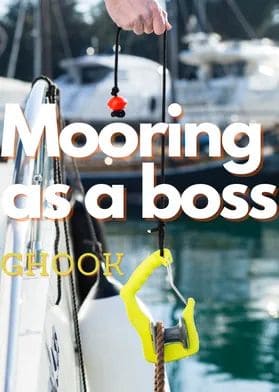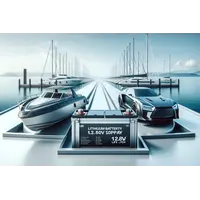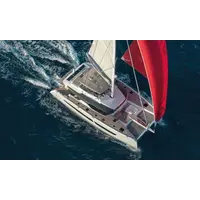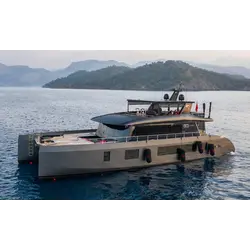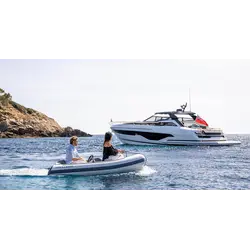INTRODUCTION. Briefly about certification systems of different yachting schools
If, after a few sailing trips, you have begun to think about going out to sea on your own, you should know that you can go out on the water on your own only if you have a license to sail a yacht. How to get the license, what kind of skipper courses exist, how to choose the best one, how long will it take to study and what opportunities does it provide? Our experts have prepared answers to almost these questions, but the choice, as always, is up to you.
There are three most popular school certification systems in the yachting community:
- RYA - Royal Yachting Association;
- IYT - International Yacht and Maritime Training;
- ISSA - International Sailing Schools Association.
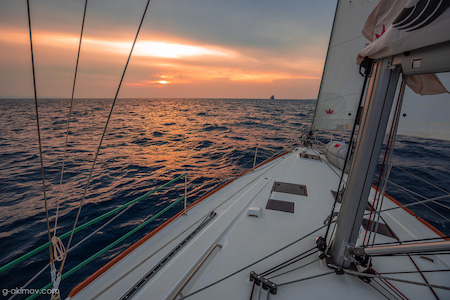
All three have franchise schools where yachting schools from different countries can be accredited. After studying at such a school, which is accredited by one of the systems, and after passing the exams, you will receive a license from RYA, IYT or ISSA.
What are the features of each of the three named systems? After all, all systems are supposed to give almost the same basic knowledge and practical skills, since they are all based on the STCW (Standards of Training and Certification of Watchkeepers) convention, which regulates the training of captains of commercial ships. In short, the differences are in the system of organization of teaching process:
RYA is the most respected from the reputation point of view. They teach only in English, the instructor and the examiner are different people, it is more difficult to get accreditation for a school here than in other systems. To be honest, the chance of not passing the exam the first time is quite high, which, however, is compensated by not the highest cost of the exam.
The course consists of theory in English with very good teaching aids and 5 days of practice at sea. You will not be able to immediately pass for the bareboat skipper. First, you will complete the full Competent Crew course and only then the Day skipper course (also theory and practice). In general, such a system allows better training of future captains. RYA's rights are perpetual and are easily recognizable anywhere in the world.
IYT is a private company headquartered in Canada. It has the largest network of schools in the world. This is because, unlike RYA, IYT schools can be taught in any national language. The standard course of study consists of theory and a minimum of 10 days of practice at sea. This gives a sufficient number of hours to learn the art of sailing and motor yachts.
The IYT license is universally recognized by charter companies. In this system, there is no separation of training for tidal and non-tidal zones, and the certificate itself is issued with the right to go to coastal zones anywhere in the world.
In addition, at IYT schools, you can simultaneously obtain an ICC, which allows you to charter boats in Europe. In recent years, the system has strengthened control over the work of schools.
ISSA - Eastern European office of this organization is located in Warsaw (Poland). However, her certificates are not always recognized by large and smaller charter companies, so there may be some problems when renting a boat. The organization became the legal successor of another Polish organization, combining several yachting schools and developing its own system of certificates.
The license of this system is recognized in some countries: Australia, Belgium, Montenegro, France, Greece, Holland, Spain, Ireland, Norway, Sweden, Great Britain, Italy, USA. But in fact, many charter companies accept them on an equal basis with the rest, and even in Croatia they issue boats under these licenses contrary to the law. Basically, the ISSA system registers schools that for some reason have not been accredited by the RYA or IYT.
What training system to choose?
If after training you want to charter a yacht abroad, any of these systems will do. RYA and IYT are universal: they are time-tested, and the likelihood that some charter or insurance companies will suddenly stop working with their certificates is extremely small.
The certification system shows how seriously the school took accreditation and how many checks and approvals it passed. In the case of RYA - a maximum, in the case of ISSA - a critical minimum. There are many first-class instructors in IYT, but they do not go to RYA schools because of the compulsory English language - it is necessary to know it perfectly, Upper-Intermediate level is not enough.
Therefore, a more significant criterion will be training programs for each of the levels of training of a yachtsman in each of the systems.
These are the programs offered by the IYT system in different levels of training.
International Crew Certificate
The course is designed for those who are just becoming acquainted with the art of sailing. Cadets study the theory of ship control, the structure of a yacht, analyze special cases, learn to knit sea knots and learn the basics of navigation. Obtaining the title of International Crew allows you to participate in sailing trips as part of a crew led by a skipper and even take part in amateur regattas as a sailor.
International Watchkeeper/Basic Flotilla Certificate IYT
To obtain this certificate, in addition to the theoretical course, it is necessary to pass a medical examination, complete radio communication classes and be able to stay on the water. Possessing a Basic Flotilia Certificate, a cadet has the right to navigate a vessel with the presence of a crew and a skipper, being in coastal waters during the day in the absence of storm conditions.
International Bareboat Skipper Certificate IYT
In order to obtain the Bareboat Skipper certificate, in addition to the theory and course of the radio operator, it is necessary to provide an individual Logbook of miles traveled with a record of passing at least 200 nautical miles, as well as a stay at sea of at least 7 days. Such a document gives the right to get a yacht at a charter company, be its captain and move away from the coastal zone for no more than 20 miles.
Yachtmaster Coastal IYT
This certificate is the second step in the career of a yachtsman who decided to expand his/her horizons. Before taking the exam for this level, it is necessary to travel 800 nautical miles, spend at least 30 days on a yacht, 2 of which are mandatory as a skipper or an officer of the watch. In addition, 12 hours must be completed during the hours of darkness. For 7 days, a cadet learns to confidently navigate a yacht at night, in difficult weather conditions, and hones his existing skills in daytime sailing.
In addition, the course focuses on the study of weather systems and modern forecasting tools, understands important points in preparation for independent long-distance trips, including maintenance of ship units, organization of life and watches on a yacht. The IYT Yachtmaster Coastal certificate gives the right to sail a sailing yacht up to 24 meters, sail no further than 60 miles from the coast, sail at any time of the day in moderate weather (up to 8 points on the Beaufort scale).
Yachtmaster Offshore IYT
A skipper who decides to further improve his skills and wants to go further and further from the coastline can try and get an IYT Yachtmaster Offshore certificate. This document allows you to move away from the coast from 60 to 150 miles, and you can drive a yacht on the high seas in any weather conditions suitable for the safe management of a sailing vessel. To obtain a certificate, it is necessary to spend at sea as part of a crew at least 50 days, 30 hours of which – during a shift at night (of which at least 6 hours as a captain).
The logbook must record 3,000 nautical miles, 2,000 of which are in coastal navigation. In addition, the candidate must have Yachtmaster Costal and VHF Radio Operator certificates, as well as a written proof of medical examination completion. The minimum duration of the course is 5 days of theoretical studies and 6 days of sea practice.
Yachtmaster Ocean IYT
The very last step before proudly calling yourself a “sea wolf” and sailing around the world is to become certified Yachtmaster Ocean IYT. The course includes a minimum of 6 days of theoretical studies with an in-depth study of astronavigation and meteorology. At the end of the course, a written exam is held. The document confirms that the skipper has all the necessary skills for independent access to the open sea, command of a yacht up to 24 meters in length anywhere in the world's oceans in all weather conditions.
The RYA system also has its own levels of training for yachtsmen.
RYA Competent Crew
There are no strong differences in the preparation of beginner yachtsmen according to the RYA system compared to IYT. The course is also designed for those cadets who are just starting to get acquainted with the art of sailing and is divided into theory and practice. However, as mentioned above, practical classes take only five days, which is not enough to fully understand the basics of sailing a yacht. The rights after receiving the certificate are the same as in IYT - the performance of all tasks of a sailor in the crew.
RYA Day Skipper
This certificate confirms that the cadet is able to sail a yacht in favorable conditions in coastal waters, however, the requirements for obtaining it differ from the IYT system: it is necessary to sail only 100 nautical miles over 5 days, 4 hours of which are at night. In addition, in the RYA system there is a division into tidal and non-tidal water areas. A yachtsman who has received this document can sail a yacht up to 24 meters in conditions of no more than 20 miles from the starting point of the route in favorable weather.
RYA Coastal Skipper
The certificate, like the International Bareboat Skipper Certificate IYT, allows you to independently handle a sailing yacht. However, only at a distance of not more than 20 nautical miles from a safe bay in any suitable weather and at any time of the day. The requirements are also different: you must have sailing experience of at least 15 days, 2 days of which as a captain and 8 hours at night. In addition, there should be a record of 300 miles traveled in the logbook. There is also a division into tidal and non-tidal water areas.
RYA Yachtmaster Offshor, RYA Yachtmaster Ocean, RYA Yachtmaster Coastal have no significant differences in the process of receiving them compared to the IYT system, except for the main ones.
| Royal Yachting Association | International Yacht Training |
|---|---|
| English system | American system |
| Classes in English | Classes in the national language |
| Only Commonwealth registered yachts can be chartered | Yacht charter available in Europe, the USA, and a number of other countries |
| Training is divided: in tidal regions and in ordinary water areas | Training is conducted regardless of tidal phenomena |
| ICC must be obtained separately | ICC issued without additional training |
| Practice lasts for 5 days | Practice lasts for a period of at least 7 days |
The main difference between the ISSA school association and the RYA and IYT is that there are no strict restrictions regarding the rules and standards of education. All ISSA member schools can develop their own curriculum or use the existing ISSA curriculum and knowledge base. The main rule is that the candidate must meet the list of requirements that exists in the association.
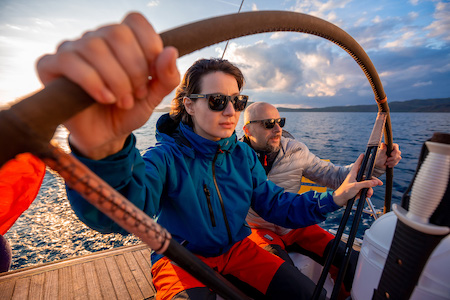
Where to study?
When choosing a skipper course, be sure to pay attention to where the school is located. This is not about the country, but about the nature of the region in terms of ebbs and flows. For those who take their first steps in yachting, it is better to choose skipper courses that are held in non-tidal areas - on the Mediterranean coast, in the Canary Islands, in Turkey, Croatia, Greece.
In this case, your skipper's certificate will have a non-tidal mark. But this way you will avoid unnecessary risks and difficulties at the very beginning of training, which may lead to the thought of quitting this overwhelming task - starting learning to sail in tidal waters is like teaching a beginner to drive a car on a racetrack.
When a novice skipper has experience, you can continue the skipper's courses in the tidal zone. For those who still immediately choose to study in the tidal area, we recommend looking for a school with a basic course of at least three weeks.
What to study?
To get training as close as possible to the real conditions of sailing on small boats, try to figure out which yachts are being chartered if you do not have your own yacht yet. As a rule, these are boats made of fiberglass material, with one mast, stationary diesel engine. The sailing armament of such vessels includes Bermuda sails, staysail and mainsail.
The ship should have cabins, a galley, latrines that differ from the usual ones; it is important to study these differences before the first independent sailing. For training, it is better to choose a modern monohull yacht from 30 to 60 feet in length. Ideal yachts for this choice are Dufour, Bavaria, Beneteau, Hanse and the like, under 30 years old.
In addition to sailing, the following skills must be included in the training:
- maneuvering with the engine;
- study of electrics and plumbing of the yacht;
- work with modern winches and stoppers;
- actions on board during heeling.
Without this knowledge and skills, independent access to the sea is impossible and simply dangerous. Maneuvering with the engine ensures reliable mooring. Skills in controlling winches and stoppers - confident and safe work with sails. Knowledge about the electrical and plumbing system of a yacht secures comfortable life onboard.
It is impossible to acquire such knowledge and skills in full on catamarans, trimarans, racing boats, on old, too small and too large yachts, on boats without a motor or with an outboard motor, as well as with sailing equipment other than Bermuda type.
How much to study?
If you do not have any sailing experience, your training in non-tidal waters should last at least two weeks. If there are offers on the Internet to make you a sea wolf in 5, 8 or 10 days, just know that this is impossible.
Another thing is that many skipper courses have different programs, which include training in basic and advanced skills. These features should be carefully studied so as not to go out to sea as a half-educated cabin boy who considers himself a sea ace. It's just dangerous.
Many years of experience of our experts shows that it is impossible to learn how to use all the necessary knowledge and practical skills in less than 14 days.
If there is an opportunity to study longer, it is better to do so - many schools offer individual training programs. It would be desirable to master the initial courses of RYA and IYT within 3-4 weeks, calmly and thoughtfully. But schools have to tightly pack all the information in two weeks, because the conditions of the associations require it.
In continuation of the conversation about the choice between individual and group training. Individual training with a good coach is, of course, an ideal option, although it is more expensive.
However, when participating in the Basic Training Program for Groups, you better study in a dedicated group. It is impossible to learn how to sail a yacht during a regatta, training yachtsmen, and even more so - an entertaining cruise. People on board the training vessel must be either instructors or students.
It's hard to stay motivated to do hard physical work, which is what hands-on training really is, if someone on the transom or in the saloon is relaxing, sunbathing, drinking. All present on the training yacht must work towards common goals and perform common tasks.
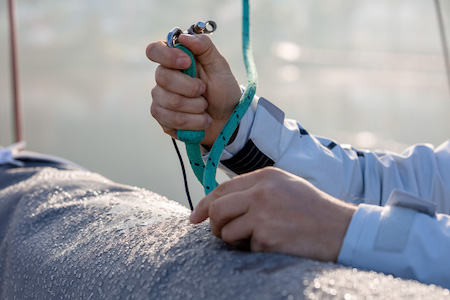
The same applies to the beginner's attempts to learn by hanging around experienced yachtsmen. You might get an idea of how to pull the ropes, stand at the helm, but such knowledge and practice is not enough to become an independent skipper.
Education is a serious process, it includes sailing theory, navigation, mooring practice, legal aspects of a yacht charter, interaction with insurance and charter companies and much more. You will not become a skipper just having stood at the helm several times.
The study of yachting theory is inextricably linked with the practical study of the structure of the boat. Basic meteorology and navigation can be learned on your own, in class or online. But everything else - safety, radio communications, sailing theory, practical navigation, international rules for avoiding collisions between ships and much more - requires regular trips to the sea.
When choosing a particular school, carefully study the training courses. The more programs the school has and the higher their level is, the more professional its instructors and the more serious their yachting experience will be. A school that only offers an entry-level Bareboat Skipper / Day Skipper course may leave you with insufficient knowledge and practical skills.
Look for feedback from alumni on social media and talk to them. The main evaluation criterion is whether the graduate goes to sea all the time.
Sergei Mazur
Check on the website of the selected certification system the qualifications of the instructor offered to you for training. On the IYT and RYA websites, you can find a school and see a list of certified instructors. The higher the degree of training of the instructor, the more he will give you.
Learn more:
- on what yacht you will be trained;
- what is the composition of the group;
- how the learning process goes - the smaller the cultural program, the better.
If you can’t allocate two weeks in a row for training, you can separate theory and practice. But only if the break between them is not long, and you do not have time to forget everything that you learned earlier. And you still need at least two weeks of practice on a yacht. One of them can be done immediately after the first half of the theoretical course, and the second - after the completion of the entire theory. In general, it will take more time, but the effectiveness of such training is much higher. It is strongly recommended to combine practice and theory on board.
What is ICC?
An important innovation of the sea charter in 2019 was the requirement by the Greek port authorities for IYT-licensed captains to have ICC (International Certificate of Competence) – additional certificate apart from IYT Bareboat Skipper Sail or Power certificates. This is because the BSS license does not allow you to operate the yacht at night.
The ICC is an additional yachting certificate that certifies your Bareboat Skipper level and is required to rent or charter a yacht. This requirement, based on Article 40 of the Committee on Inland Waterways of the Economic Commission for Europe, has recently been introduced in many EU countries and some other ones.
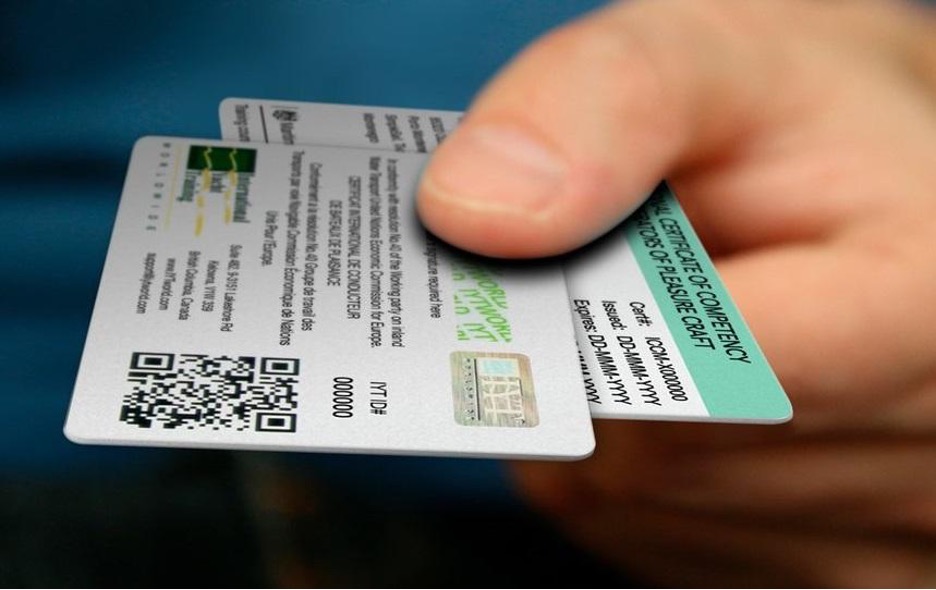
If you do not have such a certificate, the Greek or Italian maritime authorities will not give you permission to sail if the route between marinas or islands involves crossings at night.
The only compromise condition for your going to sea may be the obligation to return to your home marina every day before dark. Of course, in practice, no charter company has ever practiced this.
This requirement does not apply to those skippers who have IYT YachtMaster Coastal or IYT YachtMaster Offshore certificates, which provide the right to sail a yacht at any time of the day.
If you are already an IYT Bareboat Skipper but are not ICC certified, you can now take additional training and qualify for this document. Alternatively, take the YachtMaster Coastal course, which gives you the guarantee to charter a yacht in any country with any charter company for 24/7 management.
The minimum age for obtaining an ICC is 16 years old. The ICC is issued to individuals holding national or international yachting licenses from countries that act in accordance to Resolution №40.
If you are a citizen of a country that apply the resolution, then ICC is issued by your national authority. If you are not a citizen of such a country, then any country applying the resolution can issue an ICC for you. The ICC is not a document authorizing you to operate a sailing yacht - it is a confirmation that the Bareboat Skipper documents you have are in accordance with Resolution №40 and your competence is approved by the countries applying the resolution.
What to do after obtaining the license
What is an international skipper's license? This is a ticket to a round the world trip for the team and its captain! Historically, it so happened that the distance that a sailor can go is determined not only by him and the characteristics of his vessel, but also by a document that lies in his pocket.
And what else can you do after getting the coveted rights besides cruises with family or friends?
The skipper’s license will allow you to sail professionally or organize your own business:
- participate in yacht hauls;
- organize yacht charter services;
- take part in races;
- create a yacht trading business;
- work in the yachting industry;
- create yachting schools and teach in them.
And of course, you can keep improving your own skills, because there is no limit to perfection.
Found errors in the article? Leave a comment

